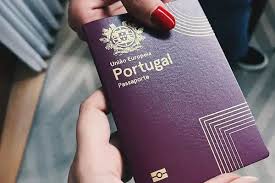If you want to move to a new country and have the capital available, you might want to consider a golden visa. Also known as ‘investment visas’, they allow someone with the ability to invest a significant amount of money in the country’s economy to take up residence there, often with a view to gaining citizenship further down the line.
Although many countries wish to boost their economies by attracting investors to these routes, The Portugal Golden visa is particularly popular. While the country itself offers beautiful landscapes, vibrant cities, and a climate that even offers warmth in winter, the terms of their golden visa are particularly favorable.
To begin with, the minimum amount of money a person is required to invest is relatively low at €250,000. Investments can be made via property purchases, investments in businesses, donations to natural heritage organizations, job creation, or a direct transfer of capital. Although it should be noted that while €250,000 is the minimum investment, each of the above investment types carries its own minimum amount in order for someone to be eligible.
The minimum amounts are as below:
Real estate investment: €500,000 unless the property is over 30 years old, in an urban rehabilitation area and you intend to refurbish the building, at which point the amount reduces to €350,000.
Capital transfer: €1.5 million
Fund subscription: €500,000
Donation: €500,000 if donating to scientific or technological research, or €250,000 if donating to the arts or a local heritage organization.
Job Creation: If you are creating your own business, you must create at least 10 jobs worth a minimum of €500,000. However, you may also invest €500,000 in an existing business which will be used to create a minimum of five full-time jobs for a period of 3 years.
Portugal’s membership of the European Union also means that anyone who gains permanent residence through this visa route will be able to benefit from the EU’s rules on free movement. This means that they would be able to travel freely between the 26 countries of the Schengen area, without the need to obtain an additional visa. Additionally, both the length of time required to obtain permanent residency and the amount of time a person is required to live in the country are also relatively short.
In order to apply for permanent residence, you only need to hold your golden visa for a period of 5 years, however, during that time, you’ll only need to be resident within the country for a total of 7 days per year. Although many will choose to stay in Portugal for longer periods of time, this may benefit others who need to travel constantly for business or spend extended periods outside of the country for other commitments.
Once an investment route has been chosen, the person applying for the visa will need to obtain an ‘NIF’ number. This is a Portuguese tax identification number and allows anyone applying for this visa to carry out their chosen investment type. This number is also required before someone can open a Portuguese bank account, which must then be used to store the funds for the chosen investment.
As well as having the available funds to make the relevant level of investment, there are a number of other eligibility criteria that must be met in order to apply for the Portuguese golden visa.
The person applying for the visa must be over the age of 18 and not have any criminal convictions. They must possess the money they intend to invest and be able to commit to maintaining the investment for a period of 5 years. Additionally, citizens of the following nations or states are not eligible to apply for Portugal’s golden visa program. Those from a nation that is part of the European Union or the European Economic Area, as well as those with Swiss nationality, will not be able to apply for this visa type.
The applicant will also need to submit various documents in support of your application. Some of this documentation will be in support of eligibility criteria, such as details of a criminal record in their country of origin. they will need to provide evidence of any healthcare coverage they have acquired, which may be through an international insurance organization or may be provided by Portugal’s own national health service. In addition to the above, the applicant will also need to submit evidence that proves their investment.
It would be beneficial to ensure that all documentation submitted in support of the application is recent, usually within 3 months of the time that the application is made. If documents have been obtained from agencies or entities outside of Portugal itself, they may need to ensure that you have your documentation notarized in order for it to be valid.
Once the documentation has been gathered together, the application can be submitted via the Portuguese border agencies own online portal, known as the ARI portal. Once this step has been completed, the applicant will need to pay the visa fees in order to have the application processed by the Portuguese authorities.
The fee’s an applicant will need to pay are as follows. The initial application fee is €5325 per person and is paid when the first application is made. A processing fee of €533 is also payable for the main applicant, with any dependents warranting a further €83 each. Although renewals of the visa require the processing fees to be paid again, subsequent application fees are set at €2663 per person.
Although it is possible for an applicant to carry out each step of the visa application process themselves, it is a complex process with multiple steps and the processing times for this visa route can take up to 10 months. As such, it may be beneficial to obtain legal representation to help guide you through the process.






